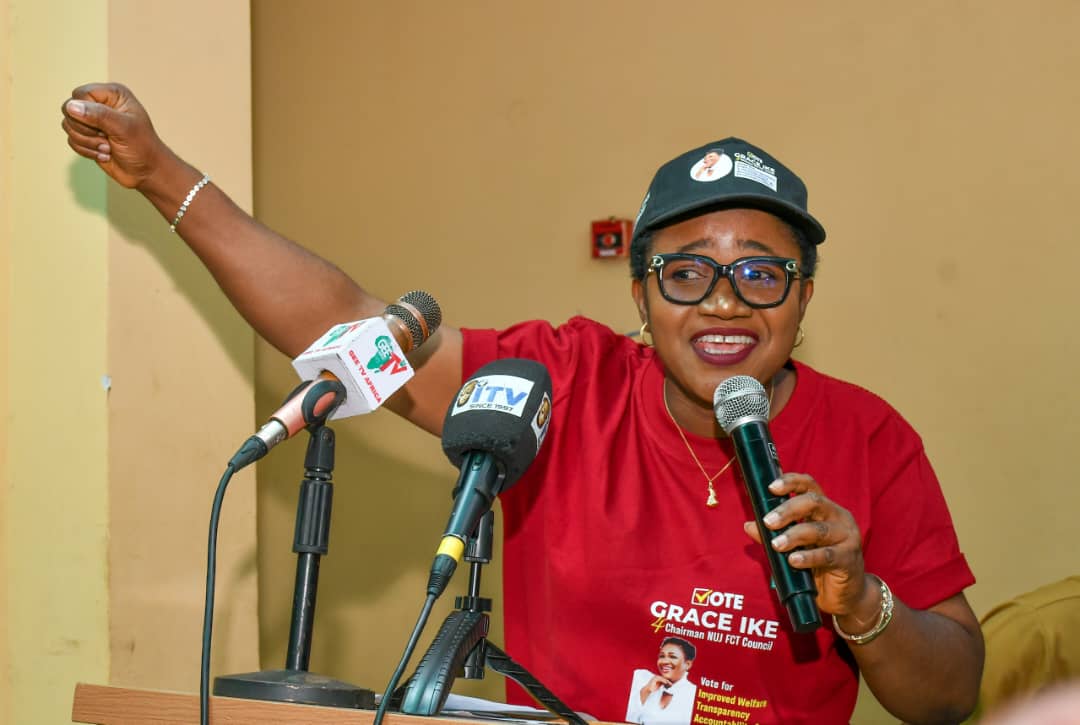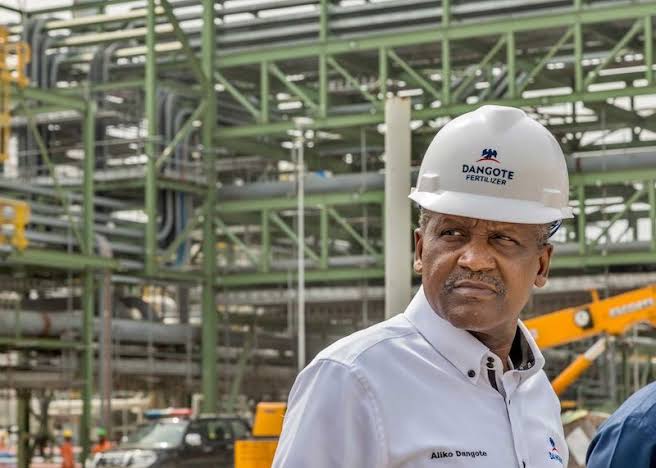News
Gov Abiodun approves N77,000 as Minimum Wage in Ogun

Ogun State Governor, Dapo Abiodun, on Monday, approved the sum of N77,000 as the minimum wage for the lowest worker in the state, and the payment takes immediate effect.
This decision was revealed after a meeting of the state Government led by the Secretary to the State Government, Mr Tokunbo Talabi, and the leadership of the Organised Labour in Ogun state, comprising the Nigeria Labour Congress, Trade Union Congress, and the Joint Negotiating Council to discuss the implementation of the new minimum wage.
Talabi said, “The meeting is at the instance of Governor Abiodun, who has directed that no worker in the state should earn less than N77,000 starting from October.
“The governor means well for the people of the state and has proactively taken steps to further ameliorate the suffering of the people.”
He added that “the governor has also advised the organized private sector to take a cue from the policy, as their workers are not exempted from the economic realities in the country, to improve the living standards of people in the state holistically.”
The SSG also noted that Abiodun has therefore advised that the private sector should dialogue with their relevant stakeholders to arrive at a commensurate minimum wage for the sector while he will set up a monitoring team to see how it is implemented by the private sector to ensure no one is short-changed.
On his part, the state NLC Chairman, Hameed Benco, said the organised labour in the state is very pleased with the governor having approved the N77,000 in consultation with labour leaders, which today is the highest in the country.
Benco noted that some states that have implemented the new minimum wage are paying N70,000, while some pay N70,250 or less, adding that the other sectorial salaries will be affected accordingly.
He also mentioned that the government has graciously approved the submission of labour and that the new basic salary should not be taxed.
In the same vein, Comrade Akeem Lasisi of the TUC and his counterpart, Comrade Isa Olude of the JNC, commended the government for being worker-friendly, while they noted that consequential adjustments for pensioners and other matters will be announced after due consultation with the relevant stakeholders.
In his reaction, Ogun State Head of Service, Mr Kehinde Onasanya, said the approval of the generous minimum wage for workers underscores the responsiveness and sensitivity of the Governor and the government to the plight of the workers and the general populace of the state.
Onasanya expressed optimism that the gestures by the government will further boost the morale of the workers in committing themselves to the implementation of the government’s policies.
News
FCT NUJ Election: Grace Ike Kicks Off Campaign, Promises To Empower Journalists+PHOTOS

…assures of insurance cover for journalists, to establish journalists’ village
…as over 100 journalists’ eyes checked, receive eye-glass, medications
By Gloria Ikibah
The sole candidate for chairmanship position in the December 4, 2024, Nigerian Union of Journalists, Federal Capital Territory, FCT, Council election, Comrade Grace Ike, has flagged off her campaign, promising to ensure journalists are empowered and have a sense of belonging.
Comrade Ike who also flagged off the campaign with free eye checks and treatments at the NUJ FCT Secretariat in Abuja, on Sunday, said it is the time for a paradigm shift from what is known over the years of the Council and called for all journalists in the FCT to join hands with her to make the long expected change a reality and ensure they are stakeholders and their voices heard in the policies, programmes and projects that her administration would be executing.

Naijablitznews.com reports that after 32 years of the commencment of the Council, Comrade Ike will be the first ever female FCT NUJ Council Chairman come December 4, 2024.
Recall that Ike was the only candidate who was cleared by the credentials committee and declared elected by the NUJ National.
She is the immediate past Chairperson of the House of Representatives Press Corps, and immediate past Vice Chairmen of the NUJ FCT Correspondents’ Chapel, which position her well to take over the leadership of the NUJ FCT Council.
Meanwhile, she has received massive endorsements from former chairmen of the NUJ FCT Council including a former national president of National Association of Women Journalists, NAWOJ, ahead of the election.

Respected stakeholders present include former Chairmen, Comrade Amos Duniya, Comrade Abdul Jelil, Comrade Paul Ella Abechi, Comrade Malachi Ozendu, Former National President of NAWOJ, Comrade Evelyn Onyilo, anf Comrade Moji Danisa amongst others.
Over 100 journalists had their eyes checked and given reading glasses and medications as the campaign is being flagged off.
She said in an emotion laden address: “Today, we embark on a journey filled with purpose, passion, and a vision to redefine our beloved Nigeria Union of Journalists, FCT Council. This moment is more than a campaign—it is the birth of a movement driven by unity, innovation, and the collective dream of a stronger, more empowered union. With humility, determination, and a heart ready to serve, I stand before you to officially flag off my campaign to become the first female Chairman of our council.
“This campaign is not about mere slogans; it is about One Voice—a clarion call for a New Era. It is about standing together on the pillars of Accountability, Transparency, Accelerated Development, Capacity Building, Innovation, Improved Welfare, and Empowerment for All. These are the building blocks of the brighter future we all envision.
“As journalists, we are the guardians of truth, the voices of the voiceless, and the watchdogs of society. But how can we effectively carry out this noble duty if our own well-being is neglected? Today, as part of this flag-off, we have organized a One-Day Free Eye Check—a symbol of my unwavering commitment to your welfare and a reminder that the strength of our union lies in the health and happiness of its members.

“Over the past 16 years, I have walked this journey with you—on the streets, in the press-rooms, and through the corridors of power.
“My years as a legislative reporter covering the House of Representatives, as Chairperson of the House Press Corps, and as Vice Chair of the Correspondents’ Chapel have prepared me to lead with courage, inclusivity, and innovation. I have championed fairness, ethical journalism, and gender equity, and I am ready to bring these values to the forefront of our council.
“But let me be clear—this is not just about me; it is about us. It is about the stories we tell, the challenges we face, and the victories we will achieve together. In the days ahead, you will hear from me and my team more often than you ever thought possible. We will disturb your timelines on social media with our program of action.
“We will fill your phones with messages that outline our mission and vision. We will visit our chapels armed with messages of hope and plans for progress. And yes, we ask for your patience and your support because this is all for our collective good.
“Our mission is simple but profound: to break barriers, uplift every member, and create a council that stands as a beacon of excellence in the journalism profession.

“Together, we will address welfare gaps, invest in modern capacity-building programs, and empower every journalist in the FCT Council to thrive in this ever-evolving media landscape. We will also ensure every journalists in FCT have insurance cover as they go about their job, and we will establish journalists’ village in the FCT for journalists, where they will have different things that has to do with their job. This village would be equipped for capacity building equipment, also for relaxation, sports, hotel accommodation, and conferences, and other facilities.”
However, Ike went philosophical quoting the words of Maya Angelou; “Nothing will work unless you do.”
She also assured that, “My team and I are ready to work, to listen, and to lead. But we cannot do it without you.”
“This campaign is a partnership, a collective endeavor to write the next chapter of our council’s history—a chapter filled with progress, unity, and purpose.

“So today, I urge you to join hands with me as we take bold steps into this New Era. Let us build a union where no journalist is left behind, where our voices are stronger together, and where our shared legacy inspires generations to come.”
In her conclusion, she declared, “With pride, passion, and a heart full of hope, I hereby declare the campaign for the NUJ FCT Council Chairmanship officially flagged off.”
News
Joint Security Patrol Team wastes Kidnapper in gun duel along Enugu/Ukwu Road

By Kayode Sanni-Arewa
The Joint Security Patrol team led by the Anambra state police command has neutralized a notorious suspected kidnapper along the Enugu/Ukwu road .
The operation according to the state police command spokesperson Tochukwu Ikenga was carried out with local vigilante group who identified the suspect before he was chased and engaged in an exchange before he was neutralized.
The joint security patrol team was said to have responded to a distress call of the planned attack by the gang members of the suspect, before acting swiftly to the scene and engaged them, which led to some of the gang members escaping with bullet wounds.
One AK 47 rifle, two magazines and five rounds of live ammunition were recovered from the suspect, as manhunt for the fleeing suspects continue according to the police. The Anambra police command urges residents to remain vigilant and report any suspicious activities in their area to the nearest police station for prompt action.
News
Just in: Dangote Refinery reduces price of petrol to N970 per litre

The Dangote Group has announced a reduction in the price of its Premium Motor Spirit (PMS) to N970 per liter.
This was contained in a statement issued by Anthony Chiejina, the Group’s Chief Branding and Communications Officer, on Sunday.
Chiejina stated that the refinery has lowered its petrol price for marketers from N990 to N970 per liter, providing them with a N20 discount per liter.
Furthermore, he emphasized that despite the price reduction, the quality of the company’s products remains uncompromised.
The statement regarding the price adjustment reads:
“Dangote Petroleum Refinery has effected a reduction in the prevailing price of its Premium Motor Spirit (PMS) from N990/litre to N970/litre for the marketers.
“As the year comes to an end, this is our way of appreciating the good people of Nigeria for their unwavering support in making the Refinery a dream come true. In addition, this is to thank the government for their support as this will complement the measures put in place to encourage domestic enterprise for our collective well-being.
While the refinery would not compromise on the quality of its petroleum products, we assure you of best quality products that are environmentally friendly and sustainable.
“We are determined to keep ramping up production to meet and surpass our domestic fuel consumption; thus, dispelling any fear of a shortfall in supply.”
-

 News15 hours ago
News15 hours agoSimon Ekpa: FG’s attempt to extradite self acclimated freedom fighter may hit brickwall
-

 News24 hours ago
News24 hours agoNUJ-FCT Elections: Comrade Ike To Flag-Off Campaign With Free Medical Checks, Treatment
-

 Politics14 hours ago
Politics14 hours agoHardship: PDP Governors seek review of governance policies
-

 Politics14 hours ago
Politics14 hours agoINEC Announces Date To Resume Nationwide Voter Registration
-

 News15 hours ago
News15 hours agoMinimum wage: Yobe Gov approves N70k for workers
-

 News15 hours ago
News15 hours agoRetired 85-year-old Col bags P.hd
-

 Foreign14 hours ago
Foreign14 hours agoTrump picks Scott Bessent, the ‘investor favorite,’ for Treasury secretary
-

 Metro14 hours ago
Metro14 hours agoNigerian Woman Arrested, Detained In Libyan Capital With 2Kg Of Cocaine








